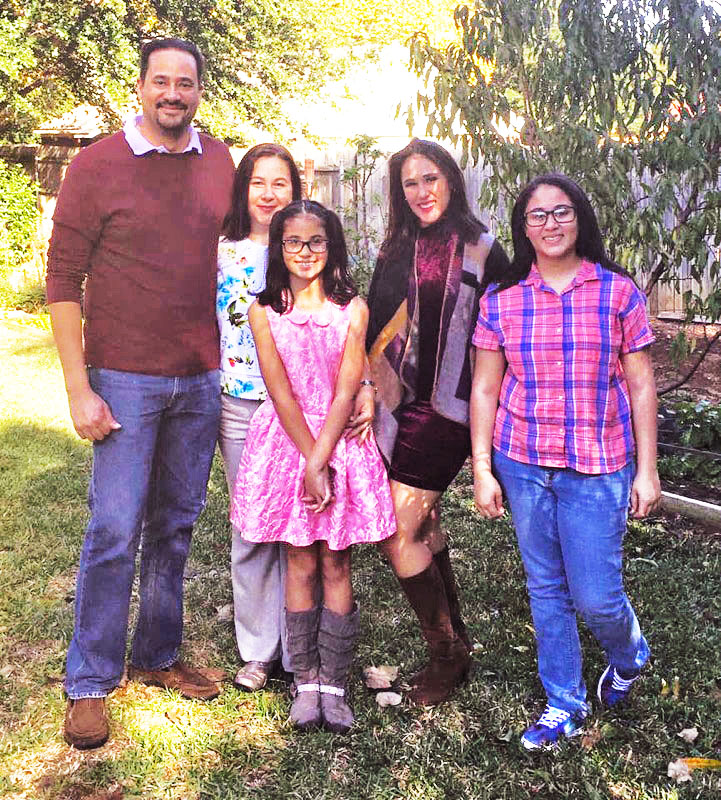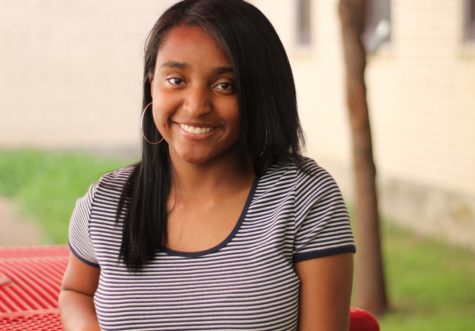Junior Angelica Suarez opened the door to her cozy house after a long day of school. It was late September, and the humidity made drops of sweat run down her back. Her head hung low as she threw her backpack to the floor. She looked over into the living room, and the television was on. The room was empty until a sudden panic rushed out from around the corner.
It was her mother, and all she could hear through her shaken and distraught voice was “turn it to CNN.” Her hand reached for the remote control, and Angelica froze as she read the bottom of the screen. All her family and childhood friends back in Puerto Rico had just been affected by a natural disaster, Hurricane Maria.
Hurricane Maria hit the island as a category 5 storm. It was the worst recorded natural disaster in Puerto Rican history affecting all of the 3.4 million US citizens that live there, including her aunts, uncles, cousins and grandma Lydia. “My entire family was pretty scared that they were not going to make it out alive,” Suarez said.
• • •
Suarez had grown up on the island, but then moved to Flower Mound after her dad received a job offer from a bank and decided to take it. Her father moved to Flower Mound a year before the rest of her family and soon after, the others followed him to Texas.
In Puerto Rico, Suarez said they barely had enough money to eat half of the time. Starting a new life in a different place was for the best.
Almost a year later the humble island that Angelica knew was in shambles.
Since the storm hit, communication between her and family back on the island was nonexistent. No one knew where they were or how they were doing. After seeing the damage that had been done to Puerto Rico, she thought her family likely didn’t make it out alive. “At first I thought that it wouldn’t be a big deal because there has been many hurricanes there before,” Suarez said. “Nothing could have prepared me for my family’s life to be on the line in a matter of days.”
As more updates poured out from disaster, Angelica immediately thought of her grandma who she spent the majority of her time with on the island as a child.
Soon she became scared and hopeless with the little information she had on the condition of her loved ones. No longer could she picture the island as a place of comfort, but of displacement and fear. “My entire family was not okay, we were spending days just trying to figure out what we could do to get them to be fine, to be safe,” Suarez said.
• • •
The few memories she has of her early life in Puerto Rico are the ones she holds close to her heart.
She remembers a warm summer a little over eight years ago when the Suarez family gathered together for lunch on a Sunday. Laughter was in the air as kids ran around the house chasing each other. Conversations were overlapping, and Angelica could barely hear the words she was saying to herself.
Her 9-year-old self smiled as the smell of the freshly baked food made its way to the patio where she sat watching the blue sky. After the party was over, she helped her grandmother, Lydia, clean up the house.
She picked up the red solo cups from the floor and crumpled napkins in between the couches. Angelica never complained when her grandmother asked her for help. In fact, she cherished every single time they were together. She calls her grandmother a sweetheart who cares deeply for the family. Angelica sees her as a kind little lady with a big heart.
Once Maria became serious she immediately thought of her grandmother, who was the only one besides her father she felt comfortable talking to about anything.
• • •
Angelica knew from the first time she watched the objects fly around in the forceful rain on TV that she had to do something to help.
What stood in her way however, was over 2,000 miles and a giant ocean. But that didn’t stop her family from sending money and provisions to their loved ones. They sent food and clothes, even with the risk of the resources never making it to their family.
Knowing she had no way of jumping onto a plane and making sure they were okay had become a burden she couldn’t push away. Angelica felt completely helpless and fell into a dark place she struggled to crawl out of. During this time the one person that kept a smile on her face was her father. Everything would seem to go away after a hug, or even when he simply sat down and listened to how she felt.
“My dad knew how to keep me calm when I cried for long periods of time,” Suarez said. “He just kept telling me that everything would be fine.”
• • •
Days after the hurricane hit, grandma Lydia was evacuated to Florida to stay with a nearby relative. She was the only family member that was evacuated. Everyone else remains back on the island. Angelica wants those in the community and Americans alike to take notice of the tragedy in Puerto Rico. Any aid, whether monetary or otherwise sent to the island will be beneficial. Seeing the island destroyed in a few days by Maria made Angelica realize just how much she missed life in Puerto Rico. She misses the unique cultural cuisine, the people, the mountains, the beach and of course her family. She especially misses having big family dinners with her cousins, uncles, aunts and her grandma.
“We are a family and we matter,” Suarez said. “If the country and our community would come together and acknowledge us, we could make a huge difference.”







